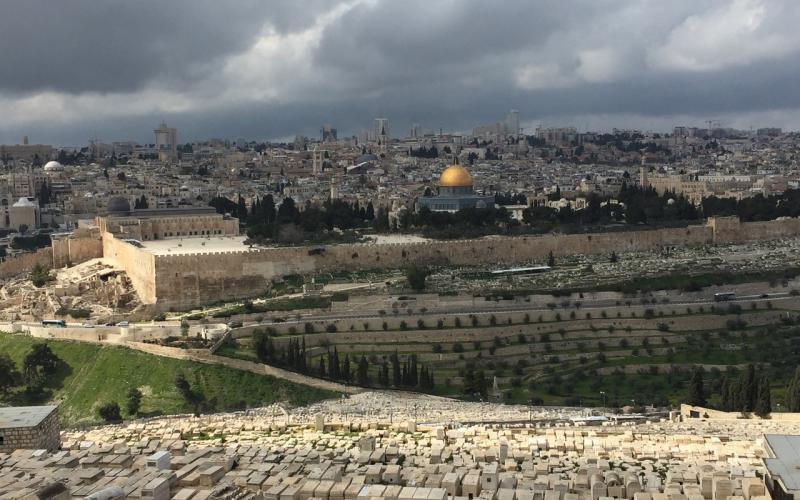Every time you tell someone you plan on studying abroad in the Middle East, they’re going to ask you the same question-- “But is it safe?” Let’s be honest, the only things Americans really know about the Middle East comes from the news. For most people, the region sparks images of deserts and camels, but mostly terrorists and violence. While you can find all of those things here, they don’t define the region.
I’ll admit, there is heightened violence in the region and it is noticeable as you travel and live there, but it’s not anything that will threaten your safety. I’m studying abroad in Israel, a country that was gifted with the circumstances that allowed it to lay out her modern cities in ways that are designed for security. For example, like most Israeli universities, my university’s campus is isolated from the city, in our case, on top of a mountain. Why? Because universities, as hubs of research and innovation, are a prime target for attacks. To even enter the campus, you will have to clear multiple guard stations, and the dormitory area is in its own separate compound from the rest of campus with even more guard stations to clear.
You get used to seeing armed soldiers everywhere, and are aware of the rooms that function as bomb shelters. In our dorms, there is one bedroom in each flat that has bomb and bulletproof secondary doors over the door and window. The elevator doors close quite quickly, because they’re designed to be missile-proof. These safety precautions become part of daily life, and most people don’t pay any mind to them, because it’s so normal. While threats are for the most part low, both the people and built environment are so prepared for a potential attack that they’re unworried.
Maybe these signs of security may signal impending attack to you or others you talk to in America, but I have yet to encounter someone here who sees them as cause for worry, simply because these precautions are a part of society that have existed since they were born and will exist past their lifetime.
Once I landed here, most people from home seemed to stop voicing their concerns about my safety and start asking more about what life is like in a non-Western country. But every once in a while, someone will mention some stabbing here or escalating tensions there that they heard about on the news. And I don’t deny that those things really are happening here. But so long as you observe the safety rules set by your program, university, or the US State Department, and take note of the stress, or lack thereof, of the locals, you shouldn’t have too much cause for concern about security.
So yes, you are safe. You wouldn’t be able to study here if you weren’t. And while it might be frustrating to answer the same, seemingly ill-informed question over and over, take advantage of this opportunity to show people all of the other wonderful sides of the Middle East that tend to be missed by most Americans.
Bethany Krupicka is a junior majoring in Urban Studies with minors in Chinese Language and Studio Arts. She is currently studying abroad at the University of Haifa in Israel.



